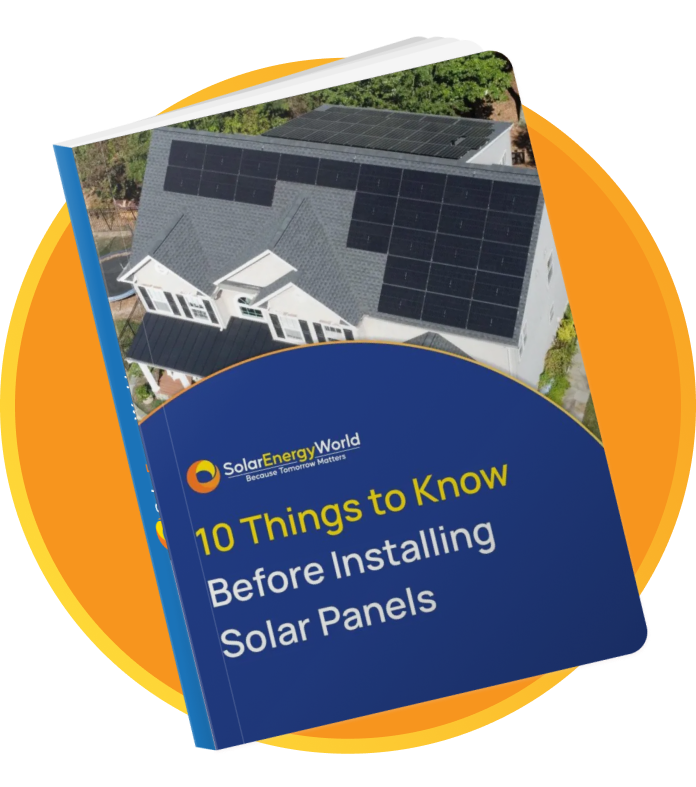Article
Will Solar Panels Increase My Property Taxes?

Renewable energy systems provide substantial long-term savings, enhanced energy independence, and greater sustainability, so it’s no surprise that they can also improve your property value. After all, prospective buyers often prioritize efficiency and potential savings over many other qualities in a home. But how do solar panels impact your property tax, and do solar panels really raise taxes?
Keep reading to discover how solar tax exemptions may affect your annual property tax bill after installing a renewable energy system.
Understanding Solar Panels and Property Taxes
To better understand how solar panels impact property taxes, let’s first explore the basics of solar tax exemptions.
What Are Solar Tax Exemptions?
Many state and local governments offer solar tax exemptions to encourage the adoption of renewable energy. Instead of penalizing homeowners who make energy-efficient improvements to their properties, officials may provide financial incentives. While these tax breaks are particularly common in states with ambitious sustainability goals, they’re gaining traction across the country.
A property tax exemption prevents the property value added by solar panels from being considered in your property tax assessment. In other words, installing a photovoltaic array may increase your property value, but you won’t have to pay additional property taxes on this upgrade when an exemption is available. Another potential avenue for savings is a solar sales tax exemption, which waives state sales tax on the purchase price and installation of renewable energy systems.
Tax exemptions on solar panels can help you save substantial cash over the lifespan of your array, offering the benefits of increased home values without the burden of higher property taxes. When combined with other federal and state financial incentives, like the Federal Solar Tax Credit, clean energy grants, and net metering programs, you can expect to see a faster return on your investment.
Do Solar Panels Increase Property Taxes?
Research has shown that homes with solar panels sell for a higher price than those strictly dependent on the grid. In fact, they may net up to 6.8% more than comparable properties. Prospective buyers are attracted to energy-efficient homes, and many are willing to pay a premium for a house with solar panels.
So, here’s the big question: If solar panels increase property values, do they also raise property taxes?
The answer to this question depends largely on your location. States with a solar property tax exemption exclude the added equity from your home’s valuation, while those without such exemptions are more likely to include the added value, increasing your tax bill. This is where local assessment practices may come into play. In some places, assessors will lump solar upgrades into your overall home value. In other jurisdictions, solar panels may be assessed separately, offering a fixed deduction or exemption.
The Impact of Solar Installations on Home Value
Installing a solar panel array can catch the eye of prospective homebuyers and set your house apart from other active listings in your neighborhood.
How Solar Panels Boost Property Value
Over the years, studies have shown a clear correlation between solar installations and increased home values. A 2025 research analysis from SolarInsure found that homes in California with purchased solar arrays sold for 5% to 10% more than comparable grid-dependent houses. Properties with systems under 5 years old experienced the highest price hike of 7% or more, while older arrays increased by about 5% to 6%. It’s important to note that while all solar panels improve energy efficiency, they don’t all boost property values. Leased solar arrays and those with a power purchase agreement did not significantly increase sale prices, as many prospective buyers are hesitant to take on existing lease agreements.
Older studies reinforce these findings, suggesting that the impact of renewable energy on home values may be growing. A 2024 Solar Reviews study found that homes with solar panels sell for about 6.8% more than non-solar homes. Finally, a 2019 assessment by Zillow demonstrated a 4.1% price increase in homes with solar arrays.
These findings suggest that prospective homebuyers understand the intrinsic value of solar as a long-term investment and that they’re willing to pay more for homes that promise significant savings, enhanced sustainability, and greater energy independence.
Understanding Property Assessments
To determine how solar panels may impact your property tax bill, you’ll need to understand how property assessments work. Your local government uses these annual or biannual assessments to generate an estimate of your home’s value, which they use to calculate your property taxes. In some cases, this figure may differ from your home’s market value or what a buyer would actually pay to purchase your property. In many cases, the assessed value lags behind market value, as this figure doesn’t account for real buyer behaviors.
Property tax assessments consider factors such as square footage, recent sales, location, and improvements, which may include solar panels. Local tax formulas and laws in your jurisdiction will determine whether or not your solar array is considered in your assessment.

10 Things to Know Before Installing Solar Panels
Navigating Local Regulations and Tax Implications
If you plan to claim a solar tax exemption, you must first research state and local laws to better understand the policies dictating your potential savings.
Local Regulations and Their Impact on Property Taxes
State, county, and local laws all impact how property taxes are calculated. Depending on your jurisdiction, you may be eligible for a state-wide solar tax exemption, a partial reduction, or no tax break at all. Without a tax exemption, installing solar panels can trigger a significant jump in assessed value, hiking your annual property tax bill. Before investing in a solar array, take time to research the tax implications of energy efficiency upgrades in your area.
Consulting with Local Tax Authorities
Unless you have a knack for research and a passion for tax law, it’s a good idea to speak with your local tax assessor’s office to clarify the implications of installing solar panels in your region. These experts should be able to answer all your questions, including:
- Does the city, county, or state offer a solar property tax exemption?
- How will my property be reassessed after installation?
- Does the exemption apply to rooftop and ground-mounted arrays?
- Are leased or third-party-owned installations treated differently from purchased systems?
- What paperwork or documentation do I need to submit to claim a solar tax exemption?
- How will the installation affect assessments for the new owner if I sell my home?
Long-Term Financial Considerations
Some state and local governments don’t offer a property tax exemption for solar panels, but the long-term savings generated by renewable energy can still outweigh the tax penalties.
Balancing Increased Property Taxes with Long-Term Savings
Even without a property tax exemption, solar panels create multiple avenues to substantial long-term savings, offsetting modest increases in property taxes. There are many financial incentives available that can help reduce the costs of going solar:
- Federal Solar Tax Credit: Reimburses up to 30% of the initial costs of a solar installation for a faster return on your investment.
- Reduced Utility Bills: A solar array can replace up to 100% of grid-sourced electricity with clean, green, solar power, reducing or eliminating your monthly utility bill.
- Net Metering: Sell surplus energy back to your utility company for credits on future electricity bills.
- Solar Renewable Energy Certificates (SRECs): Sell SRECs to businesses that want to offset their carbon emissions.
- Clean Energy Grants: Local and state-sponsored grants may reimburse you for a portion of your investment in renewable energy.
Staying Informed on Changing Laws and Incentives
Dynamic solar regulations and tax policies can change at any time, so staying informed is key to maximizing savings, planning for future upgrades, and avoiding surprises regarding the incentives you rely on. As adoption of solar energy increases, some places are scaling back reimbursement models to prevent significant drops in revenue. The following resources can help you monitor changing laws and stay up to date on current policies affecting solar panel installations:
- Your state’s energy office of public utility commission
- Local solar installation companies
- Solar advocacy groups
- Utility providers
- Database of State Incentives for Renewables & Efficiency (DSIRE)
Solar Energy World Can Help You Navigate Tax Exemptions
Understanding how solar panels impact your property tax bill is an important precursor to installation. Depending on your location, outfitting your home with renewable energy could increase the amount you must pay the government each year. Fortunately, many states are embracing solar tax exemptions to support more sustainable energy in their communities.
The experts at Solar Energy World can help you navigate the complexities of solar tax law, so you know exactly what to expect when it’s time to pay your property taxes. Get started today with a free solar estimate!
Want a Free Solar Estimate?
Fill out the form to get started today.


